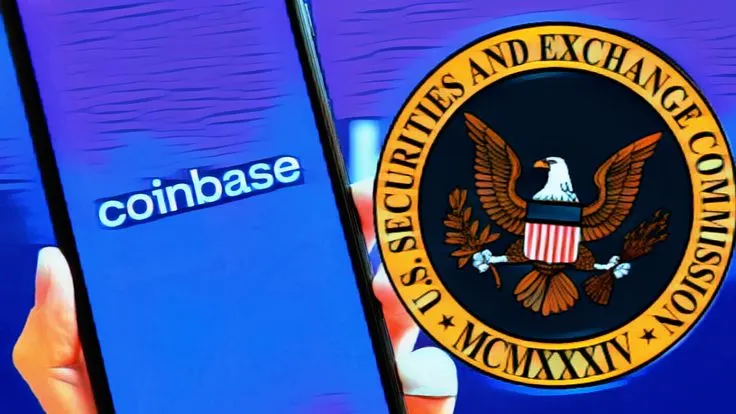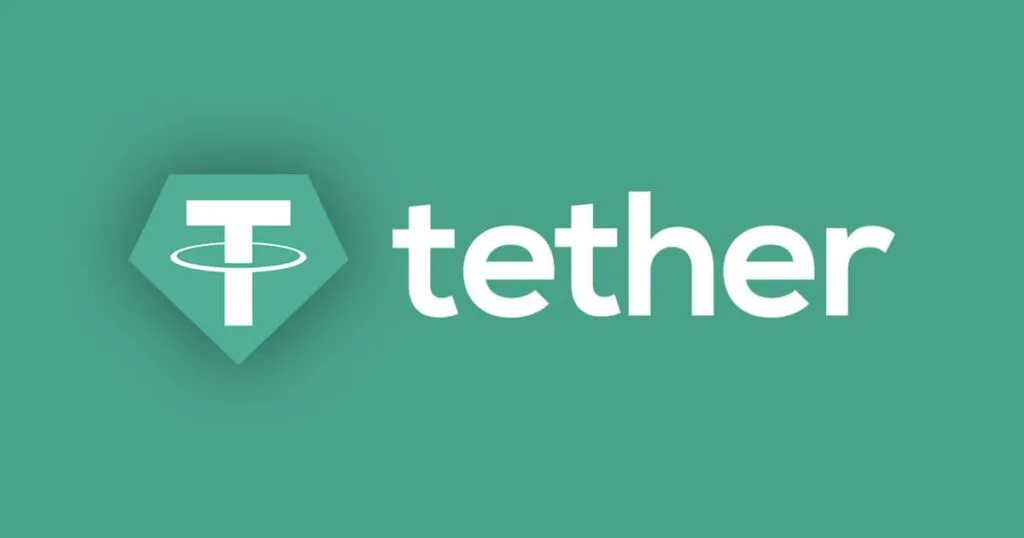Tether’s decision to relocate its headquarters to El Salvador and the US Court of Appeals’ recent opinion on Coinbase’s case against the SEC highlight pivotal moments in the evolving relationship between cryptocurrency firms and regulatory frameworks. Both developments are evidence of the growing push for clarity and innovation in the crypto industry, as companies navigate complex legal and economic landscapes while seeking jurisdictions that align with their vision for financial freedom and technological advancement.
US Appeals Court Rebukes SEC in Coinbase Case, Demands Better Clarity on Crypto Regulations
The US Court of Appeals for the Third Circuit has delivered a critical opinion in the legal battle between cryptocurrency exchange Coinbase and the Securities and Exchange Commission (SEC), calling the regulator’s decision to deny rulemaking “arbitrary and capricious.” The ruling, issued on Jan. 13, has significant implications for the regulatory landscape of the cryptocurrency industry.
In the case stemming from Coinbase’s 2022 petition requesting the SEC to establish clear rules for regulating digital assets, the appellate court partially granted Coinbase’s appeal. While the court refrained from mandating the SEC to initiate rulemaking proceedings, it criticized the agency’s denial of Coinbase’s petition, labeling the SEC’s reasoning as “insufficiently reasoned.”
Judge Thomas Ambro, writing for the panel, noted that the SEC’s denial lacked substantive justification, undermining its credibility. Judge Stephanos Bibas, in a concurring opinion, further lambasted the agency’s sporadic enforcement actions against the crypto industry, which he argued went beyond combating fraud and risked stifling innovation.
“We properly remand to the SEC to explain itself; it should not give yet another poor explanation in an already-long line of them,” Judge Bibas wrote. He added, “New inventions create new fraud risks, and the agency needs to guard against them. But sporadically enforcing ill-fitting rules against crypto companies that are trying to follow the law goes way beyond fighting fraud.”
Coinbase’s petition to the SEC, filed in 2022, sought to establish a regulatory framework for digital assets. The exchange argued that such rules would clarify which digital assets qualify as securities, providing much-needed guidance for the burgeoning industry. However, the SEC denied the request in 2023, prompting Coinbase to take legal action in the Third Circuit.
The court’s decision highlights a broader issue: the lack of clear and consistent regulations governing the cryptocurrency market. Coinbase and other crypto firms have long argued that the SEC’s approach—relying on enforcement rather than rulemaking—creates uncertainty and stifles growth.
The appellate court’s opinion stopped short of compelling the SEC to engage in rulemaking but sent a strong message about the need for greater transparency and reasoning in its decisions. The ruling emphasized that the SEC’s current practices could amount to targeting an entire industry, a move that risks hindering innovation and economic development.
Legal experts believe the decision could set a precedent for other cases involving the SEC and crypto firms. The ruling also sheds light on the judiciary’s growing impatience with the agency’s approach to regulating the sector.
The Third Circuit decision comes amid a broader crackdown by the SEC on cryptocurrency firms. In addition to Coinbase, the agency has ongoing enforcement actions against Ripple Labs and Binance, among others. In a separate case filed in June 2023, the SEC accused Coinbase of operating as an unregistered securities exchange, broker, and clearing agency. That case is currently under appeal in the Second Circuit.
A Leadership Shake-Up at the SEC
The ruling also coincides with significant changes at the SEC. Chair Gary Gensler and Commissioner Jaime Lizárraga are set to resign before the inauguration of President-elect Donald Trump. Gensler’s tenure has been marked by a contentious relationship with the crypto industry, and his resignation could signal a shift in the agency’s approach to digital assets.
While the Third Circuit ruling remands the case to the SEC for further explanation, it does not compel the agency to create new rules for crypto. The court made it clear that it would only intervene in cases of “extreme delay that endangers human lives,” not for primarily economic reasons. This leaves the future of crypto regulation in the US uncertain.
For Coinbase and other crypto firms, the ruling is a partial victory. It reinforces their argument that the SEC’s current practices are inadequate and highlights the need for a more thoughtful and transparent regulatory approach.
The Third Circuit’s rebuke of the SEC marks a pivotal moment in the ongoing battle between regulators and the cryptocurrency industry. As the SEC grapples with the court’s demand for better reasoning, the crypto sector continues to call for clear and consistent rules to foster innovation while ensuring investor protection. With leadership changes on the horizon at the SEC, the regulatory future of digital assets in the United States remains in flux.
Tether Relocates to El Salvador, Strengthening Nation’s Role as a Crypto Hub
In other news, Tether, the issuer of the world’s largest stablecoin, has announced plans to relocate its headquarters and subsidiaries to El Salvador after securing an operating license in the Bitcoin-friendly nation.
In a Jan. 13 notice, Tether confirmed it had obtained a license to operate as a digital asset service provider and stablecoin issuer under El Salvador’s progressive regulatory framework. The company cited the nation’s “forward-thinking policies, favorable regulatory environment, and growing Bitcoin-savvy community” as key factors in its decision to establish a new base.
“This decision is a natural progression for Tether as it allows us to build a new home, foster collaboration, and strengthen our focus on emerging markets,” said Paolo Ardoino, Tether’s CEO. “By rooting ourselves [in El Salvador], we are not only aligning with a country that shares our vision in terms of financial freedom, innovation, and resilience but also reinforcing our commitment to empowering people worldwide through decentralized technologies.”
The relocation marks a significant step for Tether, which has been navigating increased scrutiny from regulators worldwide. By establishing itself in El Salvador, Tether positions itself in a jurisdiction that has embraced Bitcoin and blockchain technology with open arms.
The relocation follows reports that Tether executives, including CEO Paolo Ardoino and COO Claudia Lagorio, became naturalized citizens of El Salvador in 2024. Tether has also deepened its ties with the Salvadoran government and local businesses over recent years, including its participation in renewable energy projects such as geothermal facilities for Bitcoin mining.
Ardoino has maintained a close relationship with Salvadoran President Nayib Bukele, who has championed Bitcoin adoption in the country. Ardoino’s social media posts frequently echo Bukele’s calls for innovation and entrepreneurship in El Salvador, and the two have reportedly engaged in discussions about expanding the nation’s crypto ecosystem.
Since President Bukele announced in 2021 that El Salvador would adopt Bitcoin as legal tender, the small Central American nation has been a focal point for the global crypto community. Despite initial skepticism, Bukele has continued to advocate for Bitcoin’s integration into the country’s economy, positioning it as a tool for financial inclusion and innovation.
In 2023, Tether pledged to support El Salvador’s renewable energy initiatives, signaling its long-term commitment to the country’s economic development. However, the results of Bitcoin adoption have been mixed. While Bukele has described it as a “net positive” for El Salvador, the anticipated economic windfall has been slower to materialize. As of December 2024, the government reported holding over 6,000 BTC, valued at more than $550 million.
Controversies and Challenges
Bukele’s administration has drawn praise for its success in reducing El Salvador’s once-notorious crime rate, a feat that has bolstered his popularity. However, critics have accused Bukele of undermining democratic institutions, detaining political opponents, and committing human rights abuses. Despite these allegations, Bukele was reelected in 2024, continuing his push for crypto adoption as a cornerstone of his economic policy.
While over 90% of Salvadorans reportedly do not use Bitcoin for transactions, the government remains committed to its vision of making El Salvador a hub for cryptocurrency innovation.
Tether’s decision to move its headquarters to El Salvador is a vote of confidence in the country’s regulatory environment and its ambitious vision for the future of finance. As the stablecoin issuer integrates itself further into El Salvador’s crypto ecosystem, it could pave the way for other major players in the industry to follow suit.
For El Salvador, the relocation represents another milestone in its efforts to position itself as a global leader in cryptocurrency and blockchain technology. By attracting companies like Tether, the nation aims to build an ecosystem that fosters innovation, attracts investment, and empowers its citizens through decentralized technologies.












